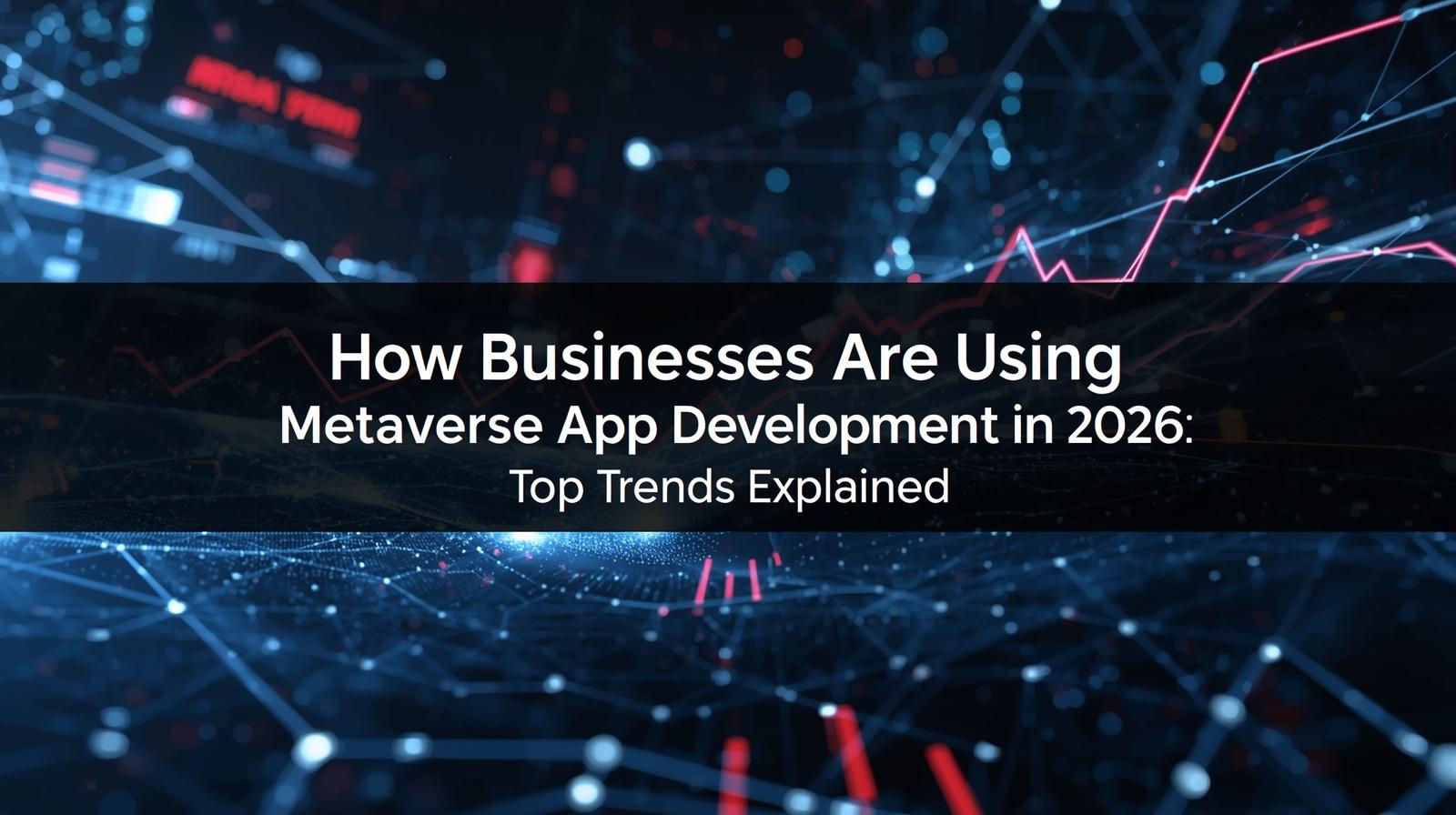
Blockchain for E-Commerce: Transforming Your Business
By deftsoft
29th September 2023
Blockchain technology is spreading like wildfire and the world is its oyster. The technology is developing at a staggering CAGR of 70.6% and is expected to hit $29.35 billion in revenue by 2024! No wonder that the e-commerce industry is already harnessing the power of the blockchain technology.
Blockchain technology has brought a revolution in the e-commerce industry. This technology has transformed the way of working worldwide. This article will walk you through the intricacies of Blockchain, exploring its core concepts, applications, pros and cons, and highlighting how it’s reshaping the way businesses operate.
What Blockchain Is and How It Works?
Before we get into the intricacies of the Blockchain in e-commerce, let us understand what it is. Blockchain is a decentralized digital locker that provides a secure and transparent record-keeping system that works across a network of computers. Unlike conventional forms of record keeping, Blockchain works on a distributed ledger model that enables participants to hold a copy of the entire ledger.
All the transactions are bundled into blocks and linked together in chronological order, forming an unalterable chain. This chain of blocks is known as blockchains that ensures data integrity and immutability.
How Blockchain Works?
Blockchain follows cryptographic techniques to ensure data. When a transaction is initiated, it goes through a verification process by a network of nodes. Once verified, the transaction is added to a block and sealed with a unique cryptographic hash. This block is then linked with the previous one, creating a continuous chain of blocks.
The decentralized nature of the Blockchain means that no single individual has control over the network. Transactions are transparent, where any changes are done only through a consensus mechanism agreed by the network participants. This is one of the strongest security mechanisms that makes Blockchain resistant to fraud and tempering.
Relevance of Blockchain in Various Industries
The impact of Blockchain is far beyond cryptocurrency. Its impact extends to various industries like healthcare, retail, finance, smart contracts, energy trading, e-commerce and more industries. As most businesses look for innovative solutions to streamline operations, improve trust, and enhance security, Blockchain emerges as a game-changer.
When it comes to e-commerce blockchain, it promises to address critical issues, including data security, supply chain transparency, and payment process efficiency. It builds trust and fosters an environment where consumers have full confidence in the products they have bought and the businesses they engage with.
Commonly Used Blockchain Technology in eCommerce
There are specific e-commerce blockchain platforms and technologies that have gained significant fame. Let’s explore the reasons behind their preference with real-world examples of e-commerce businesses using them.
1. The Smart Contract of Ethereum
Ethereum has a ground-breaking concept of smart contracts that has become a keystone of blockchain applications in e-commerce. Smart contracts are self-executing agreements with predefined rules. They automate various processes like payment and product deliveries, reducing the need for intermediaries. Recently, e-commerce industries have shown a great interest in the adoption of Ethereum due to its strong ecosystem and developer-friendly ecosystem.
Real-life example: OpenSea, a popular NFT (non-fungible token) marketplace, is built on Ethereum, allowing users to buy, sell and trade digital assets.
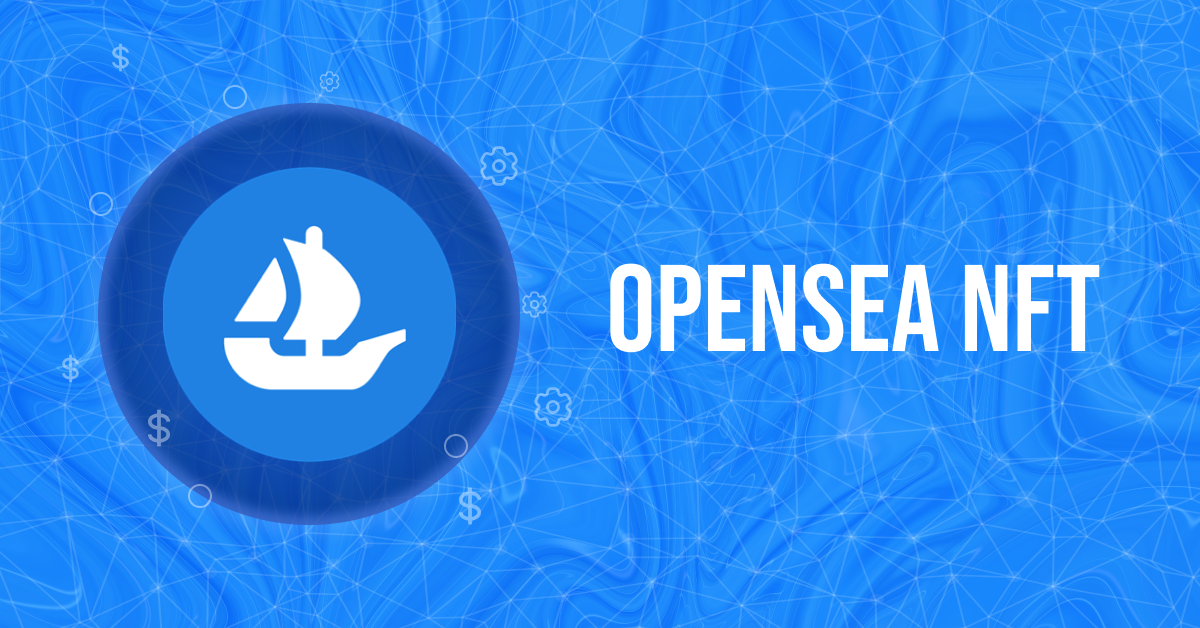
2. Speed and Scalability of Binance Smart Chain
Binance Smart Chain (BSC) is gaining traction for its focus on speed and scalability. E-commerce platforms enable fast, cost-effective transactions, and BSC addresses these needs. Its compatibility with the Ethereum Virtual Machine (EVM) allows easy migration of existing Ethereum-based projects, making it an attractive option for e-commerce businesses.
Real-life example: BakerySwap, an automated market maker on the Binance Smart Chain, provides users with efficient token swapping and liquidity.

3. Supply Chain Transparency of VeChain
VeChain is solving one of the most significant concerns in the e-commerce business —supply chain transparency. This platform is designed to enhance the task of tracing products and verifying authenticity. E-commerce companies use VeChian to build trust by letting customers track their products until they reach their doorsteps.
Real-life example: Walmart China has partnered with a company to implement a food traceability system, ensuring the safety and authenticity of products on its shelves.

4. Cross-Border Payments through Stellar
E-commerce businesses that offer cross-border services rely heavily on efficient, cost-effective payment solutions. Stellar offers cross-border transactions, making it an appealing choice for most e-commerce businesses. Its network enables fast, low-cost international payments, making it a preferred blockchain for e-commerce companies serving a global customer base.
Real-life example: SatoshiPay, a micro-payment platform, uses Stellar to enable quick, inexpensive cross-border payments for digital content.
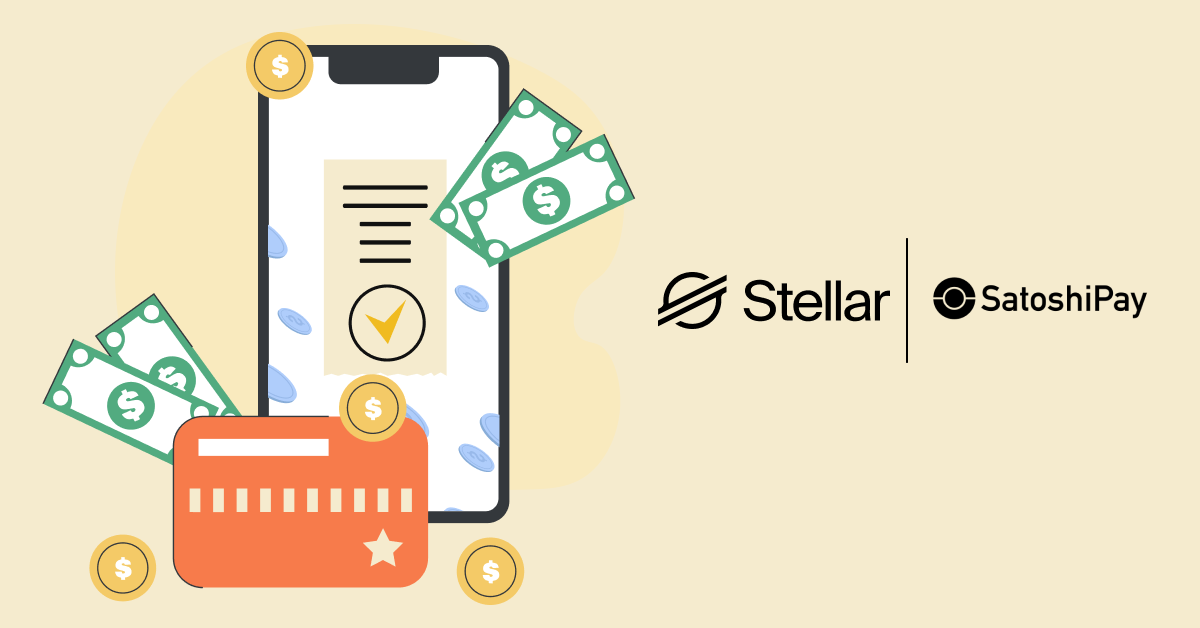
Benefits of Blockchain in E-Commerce
Blockchain offers a plethora of advantages that help businesses and consumers alike. Here are some key benefits of Blockchain in e-commerce, demonstrating its ability to enhance security, transparency, and trust for a better consumer experience.
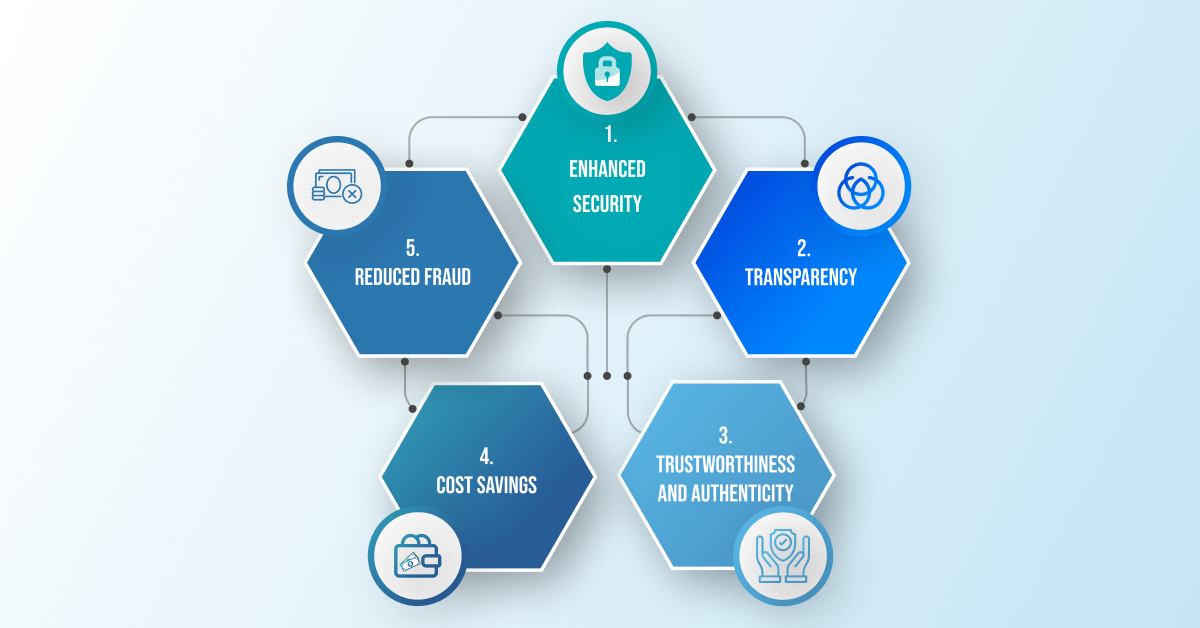
- Enhanced security: Blockchain’s security features are its strongest point, making it the best choice for e-commerce businesses. Transactions on a blockchain are cryptographically secured, making them immune to malicious tampering with the data. This kind of security ensures that customer’s personal information, including payment details, remains protected, reducing the risk of data breaches and cyberattacks.
- Transparency: Transparency is the basis of trust in e-commerce. In e-commerce, Blockchain records every transaction in an immutable ledger. Transparency is the cornerstone of trust in e-commerce. With Blockchain, every transaction is recorded in an immutable ledger that’s accessible to all authorized parties. This transparency means customers can verify product authenticity, track shipments in real time, and even view the origin of goods. Such transparency builds trust and loyalty, which is crucial for repeat business.
- Trustworthiness and Authenticity: Blockchain’s ability to verify product authenticity is a significant boon for e-commerce. Counterfeit goods have long plagued the industry, eroding consumer trust. By enabling consumers to trace a product’s journey from the manufacturer to their doorstep, Blockchain ensures that they receive genuine, high-quality items.
- Cost Savings: One of the most compelling advantages of Blockchain in e-commerce is cost reduction. The elimination of intermediaries, such as banks or payment processors, streamlines financial transactions, lowering transaction fees. Additionally, smart contracts automate processes such as order fulfillment and payments, reducing administrative costs.
- Reduced Fraud: Blockchain’s transparency and immutability serve as powerful deterrents against fraud. Fraudulent activities such as chargebacks and false claims become more challenging to execute when every transaction is verifiable on the Blockchain. This reduction in fraud not only saves money but also preserves the integrity of the e-commerce platform.
Current Challenges in E-commerce and Blockchain Solutions
Challenge 1: Data Security and Privacy Concerns
Challenge: E-commerce businesses face persistent threats to customer data security and privacy. Data breaches and cyberattacks can result in substantial financial losses and erode consumer trust.
Solution: E-commerce Blockchain’s cryptographic security measures safeguard customer data and transaction records. By decentralizing data storage and encryption, Blockchain mitigates the risk of data breaches and ensures customer privacy.
Challenge 2: Lack of Supply Chain Transparency
Challenge: Ensuring supply chain transparency remains a challenge in e-commerce, as consumers demand to know the origin and authenticity of products. Counterfeit goods and opaque supply chains undermine trust.
Solution: Blockchain in e-commerce provides traceability, enabling consumers to track a product’s journey from production to delivery. This transparency assures consumers of product authenticity and origin, helping combat counterfeiting.
Challenge 3: Payment Processing Inefficiencies
Challenge: Traditional payment processing methods are often inefficient, involve multiple intermediaries, incur high transaction fees, and delay cross-border transactions, impacting both businesses and consumers.
Solution: One of the prominent benefits of Blockchain is its streamlined payment processing, which removes intermediaries. Smart contracts automate payment settlements, reducing fees and processing times, resulting in cost savings and improved payment efficiency.
Challenge 4: Counterfeit Products
Challenge: Counterfeit products flood the e-commerce market, deceiving consumers and damaging brand reputations. Identifying genuine products can be challenging.
Solution: Another benefit of Blockchain is its product verification system, which enables customers to verify product authenticity through immutable records. This authentication system builds trust by ensuring that consumers receive genuine goods.
Challenge 5: Lack of Trust in Online Reviews
Challenge: Trust in online reviews is eroded by fake reviews and paid endorsements. Consumers struggle to distinguish between genuine feedback and fraudulent endorsements.
Solution: An e-commerce blockchain can create a transparent, tamper-proof review system. Reviews stored on the Blockchain are immutable, making it difficult to manipulate or delete feedback, thus ensuring the integrity of reviews.
Challenge 6: Cross-Border Trade Complexities
Challenge: Cross-border e-commerce transactions are often encumbered by complex regulations, currency conversions, and lengthy payment settlement times.
Solution: E-commerce blockchain’s borderless nature simplifies cross-border transactions. It offers fast, secure, and cost-effective international payments, reducing complexities and enhancing the global shopping experience.
Most Foolproof Practices to Deploy in E-Commerce
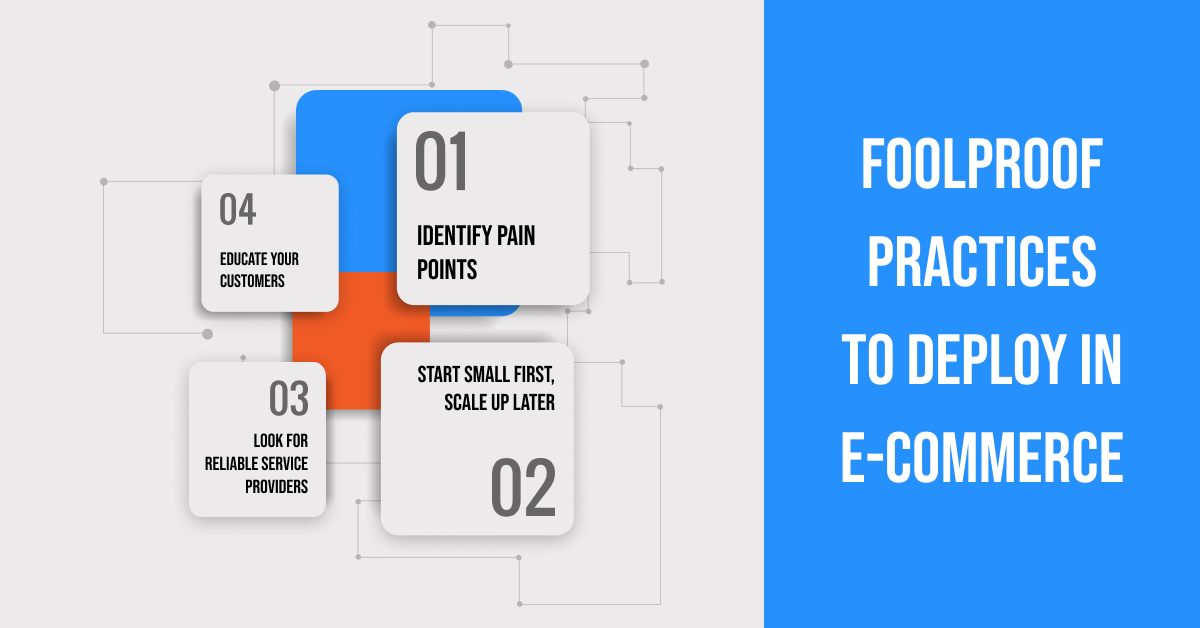
Blockchain technology has revolutionized the way data and transactions are handled in the e-commerce industry. Some of the best practices for blockchain in e-commerce are as follows:
- Identify Pain Points: Blockchain cannot be deployed in all use cases. Identify the processes in your e-commerce business that require blockchain. For instance, if you want to secure client transactions from various manufacturers, you can utilize blockchain-powered crypto exchange platforms to do so.
- Start Small First, Scale Up Later: It is essential to allocate dedicated capital to deploy a blockchain project for your e-commerce, since blockchain is a capital-intensive industry. You can therefore start with a smaller project and gradually scale up after measuring the outcomes.
- Look for Reliable Service Providers: It is crucial to collaborate with an industry-recognized blockchain service provider that understands your vision immaculately. Deftsoft is one such service provider that offers a wide range of services to help expand your business.
- Educate Your Customers: You need to disrupt your users’ habits and push them to use blockchain-powered services. This is only possible by educating users and helping them navigate new technologies. Users need to be guided to use blockchain-based e-commerce services.
Blockchain Applications in E-commerce
Blockchain technology offers a myriad of applications that are reshaping the landscape of e-commerce. Here are some key blockchain applications in the realm of online retail:
- Supply Chain Management: Blockchain in e-commerce enhances transparency and traceability in supply chains. Retailers can track the movement of products from manufacturer to customer, ensuring authenticity and reducing the risk of counterfeit goods.
- Product Authentication: Blockchain in e-commerce enables customers to verify the authenticity of products. By scanning a QR code, consumers can access a product’s blockchain record, confirming its origin and legitimacy.
- Secure Payments: Blockchain streamlines payment processing, reducing fees and settlement times. Cryptocurrencies and stablecoins offer customers secure and efficient payment options, particularly in cross-border transactions.
- Loyalty Programs: Blockchain-powered loyalty programs create transparent reward systems. Customers can trust that their loyalty points and rewards are secure and can be easily redeemed.
- Decentralized Marketplaces: Blockchain in e-commerce facilitates the creation of decentralized e-commerce platforms. These marketplaces eliminate intermediaries, enabling direct peer-to-peer transactions, reducing costs, and increasing trust.
Getting Started with Blockchain with Deftsoft
Are you ready to embark on a transformative journey into the world of this technology for your e-commerce business? Deftsoft, a trusted blockchain development company, is your strategic partner in harnessing the power of Blockchain to enhance security, transparency, and efficiency in your digital retail operations.
Why Choose Deftsoft for Your Blockchain Development Needs?
- Expertise in Security: Deftsoft’s team of seasoned blockchain developers and service providers is well-versed in the intricacies of network and hardware security. We prioritize safeguarding your e-commerce ecosystem against vulnerabilities and data tampering.
- Durable and Robust Solutions: We thrive on creating Blockchain solutions for e-commerce that stand the test of time. Our commitment to durability and robustness ensures that your blockchain implementation delivers long-term value.
- Comprehensive Support: From the initial ideation phase to the final project execution, Deftsoft stands by your side. We provide end-to-end support for seamlessly integrating Blockchain into the e-commerce ecosystem.
Our Wide Range of Blockchain Development Services
- IEO, STO, and ICO Services: Whether you’re exploring Initial Exchange Offerings (IEO), Security Token Offerings (STO), or Initial Coin Offerings (ICO), Deftsoft has the expertise to guide you through the process.
- End-to-end dApp Solutions: We specialize in developing decentralized applications (dApps) tailored to your e-commerce needs, ensuring you harness the full potential of blockchain technology.
- Smart Contracts Development: Smart contracts automate and secure processes, from payments to supply chain management. We create smart contracts that streamline your e-commerce operations.
- Crypto Exchange Development: Deftsoft can build custom cryptocurrency exchanges, facilitating seamless transactions and enhancing your e-commerce platform’s capabilities.
- Custom Blockchain Solutions: Your e-commerce business is unique, and so should your blockchain solution. We craft customized blockchain solutions tailored to your specific requirements.
- Blockchain-based Market Platforms: Transform your e-commerce marketplace into a blockchain-powered hub of trust and transparency, fostering customer loyalty and trust.
We kickstart our collaboration with a comprehensive analysis of how blockchain technology can optimize your business, ensuring you’re on the path to a secure, transparent, and efficient digital retail future.
Future Trends in Blockchain for E-commerce
The future of Blockchain in e-commerce promises exciting developments. Expect increased adoption of Blockchain for sustainability and supply chain transparency, allowing consumers to make eco-conscious choices. DeFi (Decentralized Finance) integrations will expand payment options, and NFTs (Non-Fungible Tokens) will revolutionize product ownership and digital assets. Cross-platform interoperability and blockchain-based AI will enhance customer experiences. Moreover, governments may implement Blockchain for taxation and regulatory purposes. As Blockchain in e-commerce continues to mature, it will become an indispensable tool, reshaping the industry through innovation, trust, and efficiency.
Conclusion
As the future unfolds, Blockchain will drive innovation and efficiency, empowering businesses to thrive in an increasingly competitive landscape.
To seize these opportunities and navigate the blockchain revolution effectively, partner with Deftsoft. Our expertise, commitment to security, and track record in blockchain development make us the ideal ally for your e-commerce journey. Don’t miss out on the future of digital retail—take the next step with Deftsoft today!
Recent Articles


